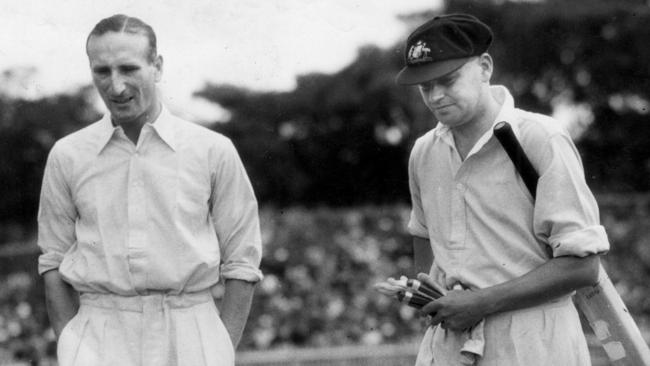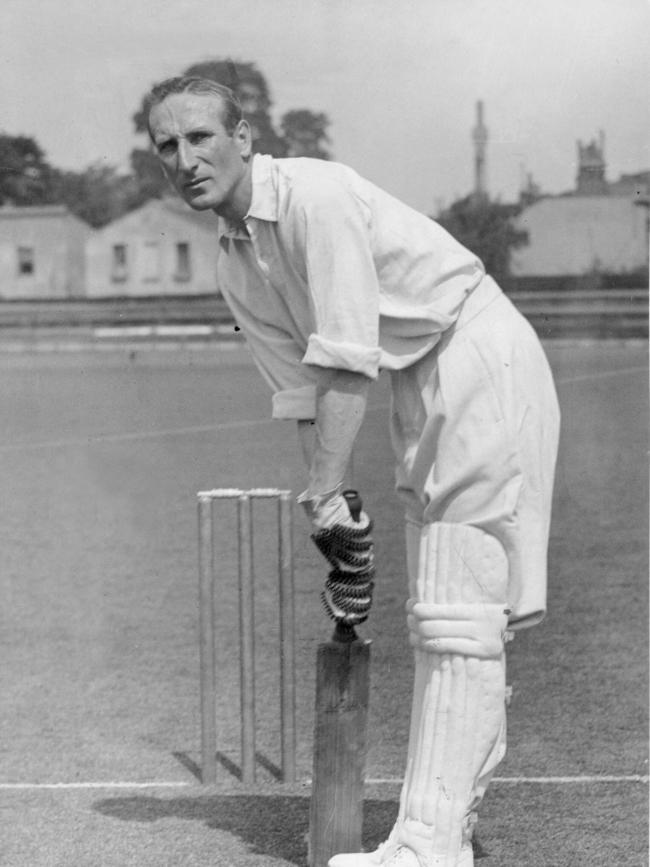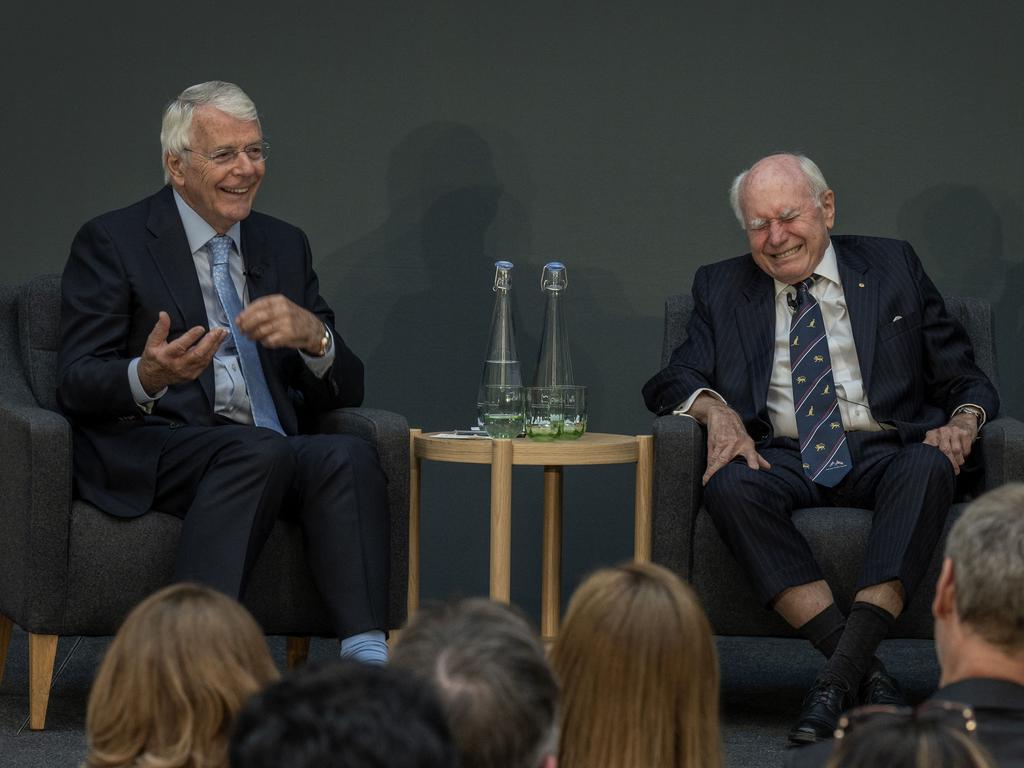England’s Ashes moral superiority fails the Test of history

The Australian team should call a press conference for the eve of the Headingley Test and – remembering how quickly Ted Lasso’s introduction to the English press got of hand – they should do two things: introduce a new vice-captain in Usman Khawaja and script for Pat Cummins a breezy apology over the stumping incident at Lord’s.
I think Cummins, with the much-loved Khawaja by his side, should apologise for not withdrawing the team’s appeal. To allow the batsman’s dismissal to stand in these circumstances was not, he should concede, in the spirit of the game.
But he should also note that keeper Alex Carey threw the ball at the stumps in one fluid movement, and that is a perfectly legitimate action in the heat of battle.
In fact, as Cummins has pointed out, Jonny Bairstow had attempted the same ploy earlier in the match.
But Cummins should concede that Bairstow had effectively withdrawn from the contest of bat and ball by scratching at his crease and walking down the pitch to shoot the breeze with his batting partner. But that’s where the presser should begin, not where it should end. Cummins should go on to explain that he permitted the appeal to stand because the team felt deeply aggrieved by Mitchell Starc’s disallowed boundary catch the night before. And that the loss of the side’s only spin bowler and lead wicket taker heading into that fifth-day run chase was a considerable blow.
Therefore, at the moment the bails leapt off Bairstow’s stumps, it seemed like a piece of deserved good fortune.

But this press conference and concession need to be wrapped in another form of rhetoric that makes it clear to the crowing English public that neither Australians nor anyone else buys into their presumption of moral superiority. The whole thing should be bookended with a quick video presentation recalling the Bodyline saga in period footage: a story told through imagery.
Now I’m no spin doctor or marketer – I’m a journalist. And the main point of the exercise is to drive home certain abiding truths: that Bairstow’s stumping on the final day of the Lord’s Test match should be seen in context, and that England has no right to claim the moral high ground in Ashes cricket.
It was, after all, a mean-spirited English aristocrat, Douglas Jardine, who conceived and executed the most vicious and unsportsmanlike strategy ever deployed on a cricket field.
Wisden describes the famous 1932-33 Bodyline tour, captained by Jardine, as “probably the most controversial tour in history. England won four of the five Tests, but it was the methods they employed rather than the results which caused so much discussion and acrimony.”
That’s an accurate enough account, but it doesn’t quite capture the mood of the time or, I suspect, the sense of betrayal felt by a young nation by the so-called mother country.
Despite universal displeasure of Jardine’s methods in Australia, he returned home a national hero. But there was something typically English about gentleman Jardine’s viciousness, something that spoke to a deeper strain.

From where did this streak come? Some see it as a response to the ribbing from Australian barrackers who disapproved of his glacial batting tempo.
I suspect the answer can be found in his childhood. Jardine was born in India into a family with long Indian connections and the British Raj was a particularly vicious theatre of imperial rule.
Though national stereotypes are often little more than masks of convenience, the idea of an inborn English tolerance and equanimity – of fair play and reasonableness – is one of the more risible national cliches.
As Australians, we see this more clearly than most, for we are ourselves the offspring of English society during a particularly vicious period. And so I wasn’t at all surprised to see those pale gentlemen in their sports jackets turn on the Australian fieldsmen with unbridled viciousness of a vengeful mob because the laws of cricket – this class for centuries used the law to maintain its social position – were not, in this instance, in their favour.







The third and decisive Test match in this often ill-tempered Ashes series will begin at Headingley in Leeds on Thursday evening (AEST), and if I had any influence on the Australian team’s brains trust I would advise the following: in the game of public opinion it’s time to retreat and, at the same time, advance.